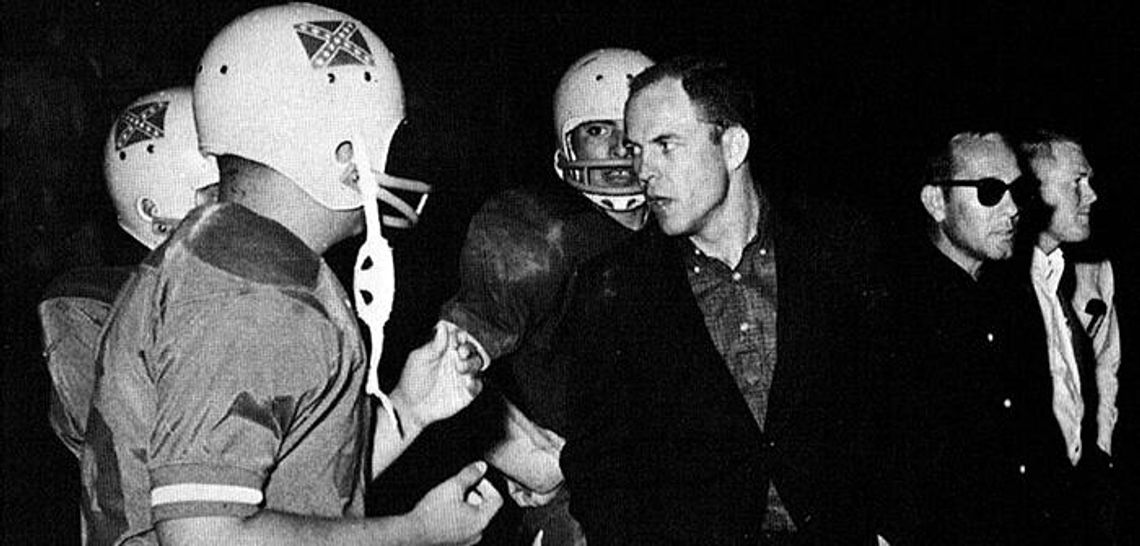[dropcap]B[/dropcap]efore having a stadium named after him and earning a spot in the Texas High School Football Coaches Hall of Honor, Bob Shelton was front and center to the old Buda-Kyle rivalry.
Shelton, who for four years was the Buda Bulldogs head football coach, said Kyle was the basketball power, while Buda was a football town.
And while there was much “consternation” by adults when the towns sought to consolidate, Shelton remembers how quickly the students banded together.
Shelton said he was given the choice of working as a basketball coach or the football coach and athletic director after consolidation occurred.
“Football was my first love as a coach anyway, but I played basketball a lot, and felt like I could do a good job in either area,” Shelton said.
Once at the helm, Shelton began to set his coaching staff, which consisted of four coaches from Buda and Kyle. Sports that were offered were football, boys basketball and volleyball. Shelton said he went to the school board to institute girls basketball.
“Girls basketball pretty soon was our main girls program,” he said.
With the consolidation came a change in opponents as well. Prior to consolidation, both Kyle and Buda played in the University Interscholastic League’s Class B classification.
After 1968, the Hays school, later named Hays High, played at the 2A level. Opponents included Randolph and San Antonio Cole.
But Shelton said the teams approached the classification with the “attitude that we were going to do well.”
The big problem, however, was getting enough players to participate. Shelton said only 28 students were on the football team the first year after consolidation.
Location was also a problem, as the sports programs split playing fields and courts at both schools before Hays High, and a subsequent football field, was built in 1969.
“We tried to play a junior varsity schedule and varsity schedule with 28 kids. That was hard to do,” Shelton said.
A constant was the students’ willingness to get along, even as many of their parents were frustrated at consolidation. Shelton said he remembers “good things” about the first football practice, which featured senior players from Buda and a handful of juniors from Kyle.
Hays went 4-5-1 that first year and played Randolph for the district title. It wasn’t until the UIL playoff system expanded in 1982 when Rebel football first made the playoffs.
“We had a lot of kids and a lot of good people. Consolidation is not going to be successful unless you have a lot of good people,” Shelton said. “We were fortunate and we had a lot of good people in the community.”










